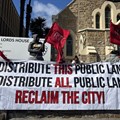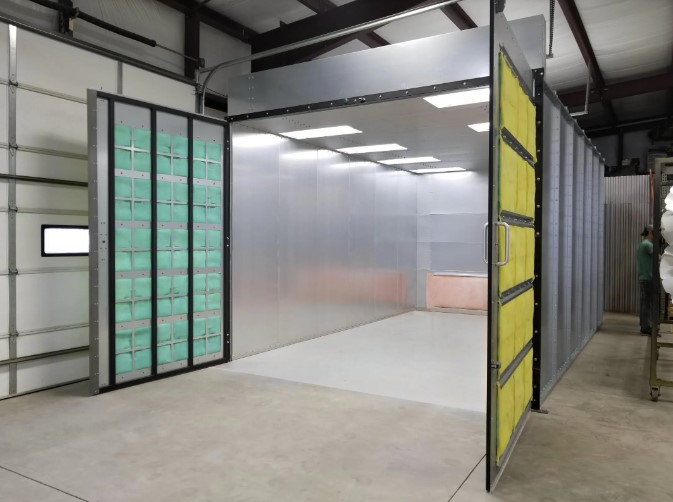NPPC disappointed by Ramaphosa’s silence on housing delivery
The National Home Practitioners Council (NPPC) has expressed its disappointment in the lack of clarity and motivation on vital initiatives expected to catalyse economic advancement and wealth creation for the duration of this year’s State of the Country Address (Sona).

Vuyiswa Ramokgopa, chairperson of the NPPC
The housing marketplace and the property sector in typical, it says, capabilities as a proxy for the normal overall health of an financial state and following past week’s Sona, it is obvious that restoration is still a extensive way away.
The assets business
From the perspective of the property marketplace, Sona elevated quite a few challenges that are of individual issue. Vuyiswa Ramokgopa, chairperson of the NPPC, shares that, “Matters like expediting the acceleration of the supply of inexpensive housing, the delayed issuing of title deeds, the poor state of municipal management and the power crisis are creating harmful roadblocks to the financial effectiveness of the sector and the advancement of the financial state at large.”
Title deeds
According to the Centre for Economical Housing in Africa, there is a backlog with an estimated 2.5 million people in want of housing. Then there is the issue of title deeds – in accordance to President Cyril Ramaphosa, “The existing backlog in processing title deeds is above 1 million properties, which amounts to an believed R242bn in assets that need to be in the hands of South Africa’s poorest homes.”
“A title deed is so substantially additional than a authorized document it is the key to enabling homes entry to wealth development and the means to participate in a wide variety of economic pursuits this sort of as funding their children’s instruction and consolidating debt. The truth that some RDP housing recipients have been waiting for a long time to obtain their title deeds is one of the best tragedies of our democratic dispensation,” shares Ramokgopa.
To day, the only latest action we’ve noticed from government is an announcement in Oct past calendar year stating that ‘Human Settlements will form a section of the authorities-large tactic of Operation Vulindlela on title deeds, in partnership and collaboration with provinces and municipalities. This is to guide the sector as a complete in all a few spheres to make sure that South Africans become the rightful homeowners of their own homes’. No additional information and facts has been presented.
The NPPC does, nonetheless, observe the development built in releasing 14,000 hectares of point out land for housing development and thinks that this is an crucial phase in responding to the at any time-expanding demand from customers for very well-situated, city serviced land for housing and financial growth purposes.
This need, on the other hand, significantly outstrips the present-day source and until the situation of land redistribution is resolved, South Africans will go on to see a proliferation of unlawful occupations of land and the hijacking of structures.
“We, consequently, phone on authorities to expedite this procedure and partner with the personal sector to be certain the swift delivery of housing and infrastructure,” urges Ramokgopa.
The difficulty of social housing
The Division of General public Performs and Infrastructure has gazetted a extensive document updating the norms and specifications for all rental housing in South Africa. A important trend that has emerged in rental housing is the progress and recognition of the informal rental market place, which in 2016 comprised 919,000 households, a quantity that is believed to have greater exponentially since then.
“The government cannot monetarily find the money for a commitment to the eradication of informal settlements and the provision of completely subsidised, stand-on your own houses for minimal-earnings homes. Conference this desire on your own will need the federal government to develop at minimum 1.8 million homes at a existing expense of R343bn,” the office stated.
In accordance to the office this is why governing administration is now shifting its coverage emphasis toward casual settlement upgrading, site and provider schemes, very affordable housing for possession, social housing and reasonably priced rental, together with shared a person-place/shared ablutions, more compact units, and so forth.
“This coverage shift is essential in supporting this very important segment of the market. However, there requires to be more than excellent coverage. The test will be in the execution of these types of and govt is known for lagging in this location. A very good barometer of how serious federal government is about housing would have been to see what sort of interest this issue been given in the Sona, which was none at all,” warns Ramokgopa.
The housing lender
South African finance minister Enoch Godongwana lately announced that federal government is hunting at launching a housing bank to deliver loans to general public sector personnel and the gap current market.
Ramokgopa shares that, “While the NPPC welcomes this announcement and sees the enhancement of a housing lender as a extremely constructive 1, a decade has passed since the division very first introduced the development of this financial institution, previously acknowledged as the Human Settlements Enhancement Lender. Much more recently, the president introduced for the duration of the 2021 Sona that the lender would be founded that calendar year.
“To day, there have been no even further developments in this regard and this year there was no mention of this initiative, which even more raises queries as to the dedication of governing administration to delivering on this assure.”
Energy
In the course of his Condition of the Country handle, the president frequently talked about a scheme to really encourage householders to switch to solar panels. No other details have been furnished as yet. Ramokgopa thinks that, “While this is a go that is applauded by the NPPC, it all over again raises various concerns, the primary of which would be what sort of incentive will be presented, and what form of price would Eskom even now involve, even if property owners go totally off the grid. These are queries we hope to get a great deal additional clarity on in the coming times.”
Municipal governance
Subsequent on the president’s feedback about vitality generation, a 2nd concern, which is intently associated, is that of municipal governance. The actuality that “163 out of 257” municipalities are dysfunctional or in distress is an indictment on the leadership of people municipalities and an admission of a full failure of governance which are not able to be taken lightly.
“The functioning of municipalities has a direct effects on investment decision and assets values. As companies migrate out of badly managed municipalities, it also deepens unemployment in all those places and drives more people into now overcrowded urban centres positioning more strain on infrastructure,” says Ramokgopa.
Although progress has been created in some places, it has been way too incremental offered the state of disaster the place finds by itself in at this stage. What the country desires suitable now is not a message of “hope” but alternatively a in-depth action plan backed by knowledgeable leaders who are able of offering that approach.
In accordance to the NPPC, Sona 2023 would appear to be yet another deal with loaded with positive nonetheless, eventually, vague claims of improvement. It stays to be witnessed if any concrete deliverables will be communicated in the coming months.





:quality(70)/cloudfront-eu-central-1.images.arcpublishing.com/irishtimes/SL4ZJEXTC5DIXNN4OZFLJTU4UE.jpg)


